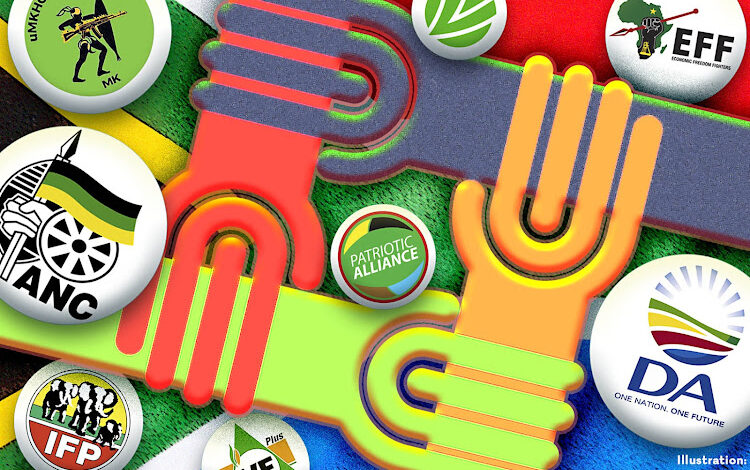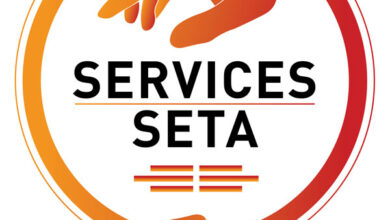ELECTION AND COALITION: great decision in coalition

It is indeed a somber time for former South African President Jacob Zuma. The once-dominant political party he was affiliated with, the African National Congress (ANC), is facing a significant challenge in the province of KwaZulu-Natal (KZN) after elections.
election, A coalition will be formed to comprising the ANC’s main opposition parties – the Democratic Alliance (DA), the Inkatha Freedom Party (IFP), and the National Freedom Party (NFP). This formidable alliance aims to collectively diminish the ANC’s dominant position in the province, which had previously enjoyed a comfortable 45% of the vote.
The coalition’s strategy is to pool their resources and voter bases to present a united front against the ANC, effectively diluting the party’s influence in the region. This move is seen as a major blow to Zuma’s political legacy, as the ANC’s stronghold in KZN has been a crucial factor in maintaining the party’s national dominance. election

Analysts suggest that the coalition’s coordinated efforts could significantly impact the ANC’s performance in KZN, potentially reducing the party’s vote share to negligible levels. This would mark a significant shift in the political landscape, potentially paving the way for a more balanced and competitive electoral environment in the province.
The elections in KZN are poised to be a closely watched battleground, with the ANC facing a formidable challenge from the opposition coalition. The outcome could have far-reaching implications for the national political landscape, as well as the future of Jacob Zuma’s legacy within the mk party
election In the ever-changing and unpredictable political climate of South Africa, the province of KwaZulu-Natal finds itself at a critical juncture. The recent provincial elections held on May 29th have resulted in a fragmented political landscape, with no single party securing an outright majority. This has set the stage for a high-stakes negotiation process, as the African National Congress (ANC), the Democratic Alliance (DA), the Inkatha Freedom Party (IFP), and the National Freedom Party (NFP) engage in intensive discussions to form a coalition government.
Table of Contents
The negotiations taking place in KwaZulu-Natal are seen as a pivotal moment, not just for the province but for the broader political landscape of the country. The ability of these diverse political parties to find common ground and forge a coalition deal could have far-reaching implications for the stability and governance of the region. The stakes are high, as the outcome of these negotiations will shape the political direction of KwaZulu-Natal for the next five years.
election Observers of the South African political scene are closely monitoring the developments in KwaZulu-Natal, recognizing the potential for this coalition deal to serve as a template for other provinces facing similar challenges of fragmented election results. The successful formation of a coalition government in this province could pave the way for more collaborative and inclusive governance models across the country, potentially breaking away from the traditional winner-take-all approach that has dominated South African politics in the past.

As the negotiations continue, the people of KwaZulu-Natal and the entire nation await the outcome with bated breath. The future of the province, and perhaps the nation, hangs in the balance as these political parties navigate the complexities of power-sharing and compromise. The decisions made in the coming weeks and months will have a lasting impact on the political landscape and the lives of the citizens they serve.
According to sources closely involved in the ongoing negotiations, the African National Congress (ANC), the Democratic Alliance (DA), the Inkatha Freedom Party (IFP), and the National Freedom Party (NFP) are on the cusp of reaching a significant agreement that could have far-reaching implications for the future of the KwaZulu-Natal province in South Africa. The discussions between these major political players have been intensifying in recent weeks, as they navigate the complex landscape of regional governance and power dynamics.
The potential deal, if finalized, would mark a crucial milestone in the province’s political landscape, potentially reshaping the balance of power and the way key decisions are made. KwaZulu-Natal is a strategically important province, known for its diverse population, rich cultural heritage, and economic significance. The outcome of these negotiations could have a profound impact on the lives of millions of citizens, influencing the allocation of resources, the implementation of policies, and the overall direction of the province’s development.

The sources close to the discussions have revealed that the negotiations have been characterized by both challenges and opportunities, as the various political parties seek to reconcile their competing interests and find common ground. The delicate nature of these talks underscores the high stakes involved and the need for a carefully crafted agreement that can withstand the scrutiny of the public and the political arena.
As the discussions continue, the eyes of the nation are fixed on KwaZulu-Natal, where the future of the province hangs in the balance. The potential outcome of this deal could have lasting implications for the political landscape of South Africa, setting the stage for new power dynamics and shifting the trajectory of the region’s development.





